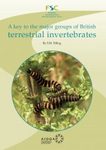![Invertebrate Conservation and Agricultural Ecosystems Invertebrate Conservation and Agricultural Ecosystems]()
Click to have a closer look
About this book
Contents
Customer reviews
Biography
Related titles
About this book
Invertebrate Conservation and Agricultural Ecosystems explores the diverse interests of invertebrate conservation and agricultural production. It is both an introduction to invertebrate conservation biology for agriculturists and an introduction to crop protection for conservation biologists, demonstrating how these two disparate fields may draw on each other for greater collective benefit. It draws on recent literature to show how invertebrate conservation in highly altered landscapes may be promoted and enhanced. The book deals with problems of, and approaches to, invertebrate conservation in highly managed agricultural ecosystems, and how biodiversity may be promoted without compromising agricultural production. It draws attention to the importance of invertebrates in agricultural systems and their role in ecosystem functions.
Provides the first detailed synthesis of more integrated or holistic management to promote invertebrate conservation in agroecosystems without unduly compromising priorities of any party
Broad overview of difficulties and priorities of invertebrate conservation in agricultural ecosystems, and how conservation may be harmonised increasingly with agricultural production
Designed for pest managers/agriculturists to appreciate better the aims of conservation biologists, and for conservation biologists to appreciate better the constraints and priorities of agricultural producers
Contents
1. Introduction: agricultural ecosystems and conservation; 2. Agriculture and biodiversity: the place of invertebrates; 3. Agriculture: effects on invertebrate diversity and conservation; 4. Agricultural disturbances: diversity and effects on invertebrates; 5. Biological control and invertebrate conservation; 6. Cultural aspects of pest management; 7. Extending beyond cropping areas; 8. Field margins and landscape ecology; 9. Pasture management and conservation; 10. Toward more holistic management for invertebrates; References; Index.
Customer Reviews
Biography
Dr Tim New is Reader and Associate Professor in Zoology at La Trobe University, Melbourne. He has broad interests in insect conservation, systematics and ecology, and has published extensively on these topics with more than 350 research papers and more than 20 books. In 2003 he was awarded the Marsh Christian Trust Award for insect conservation by the Royal Entomological Society. Dr New is currently Editor-in Chief of Journal of Insect Conservation.
















































